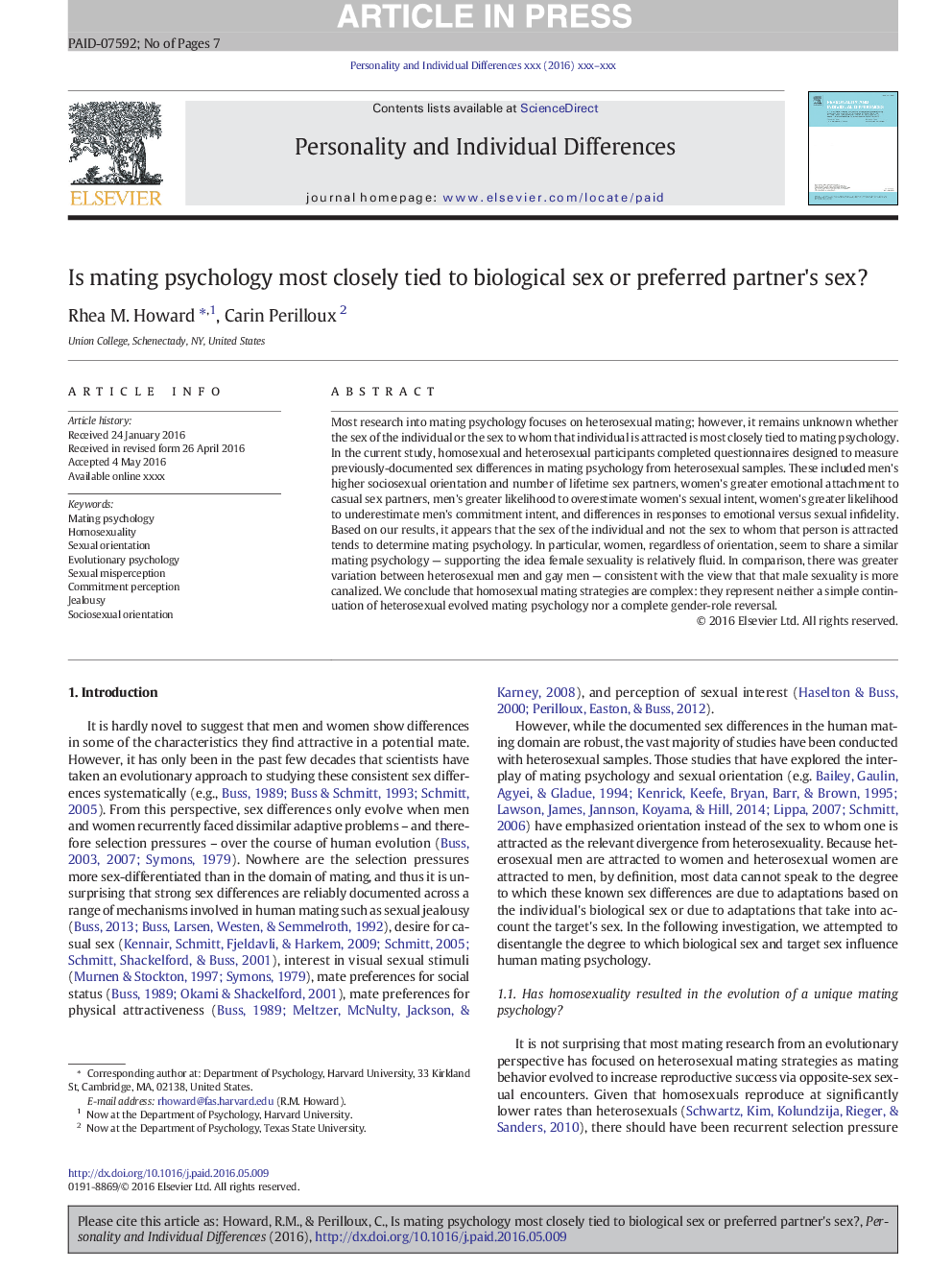ترجمه فارسی عنوان مقاله
آیا روانشناسی متصل است که بیشتر به جنس بیولوژیکی یا جنسیت شریک ترجیح داده می شود؟
عنوان انگلیسی
Is mating psychology most closely tied to biological sex or preferred partner's sex?
| کد مقاله | سال انتشار | تعداد صفحات مقاله انگلیسی |
|---|---|---|
| 130107 | 2017 | 7 صفحه PDF |
منبع

Publisher : Elsevier - Science Direct (الزویر - ساینس دایرکت)
Journal : Personality and Individual Differences, Volume 115, 1 September 2017, Pages 83-89
ترجمه کلمات کلیدی
جفتگیری روانشناسی، همجنسگرایی، جهت گیری جنسی، روانشناسی تکاملی، سوء تفاهم جنسی ادراک تعهد، حسادت، جهت گیری اجتماعی،
کلمات کلیدی انگلیسی
Mating psychology; Homosexuality; Sexual orientation; Evolutionary psychology; Sexual misperception; Commitment perception; Jealousy; Sociosexual orientation;

